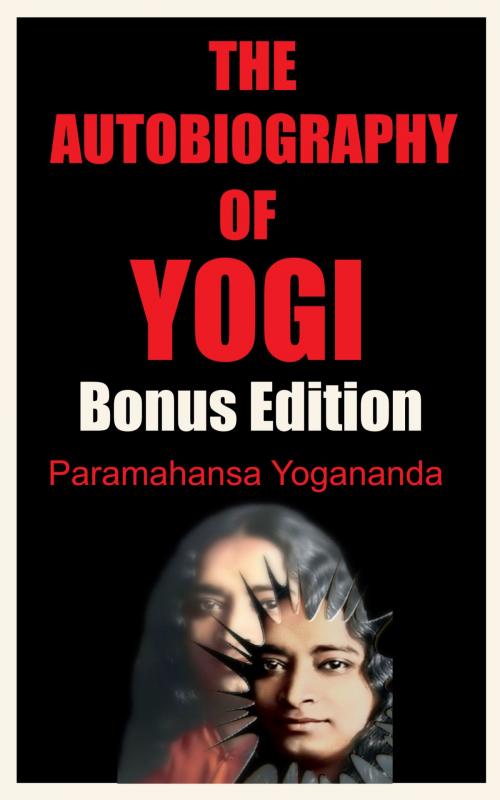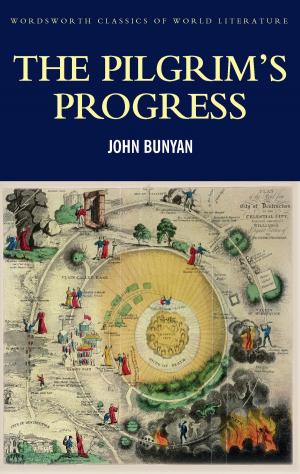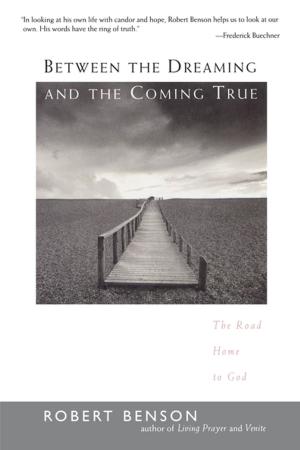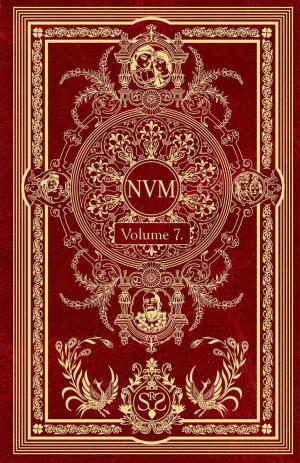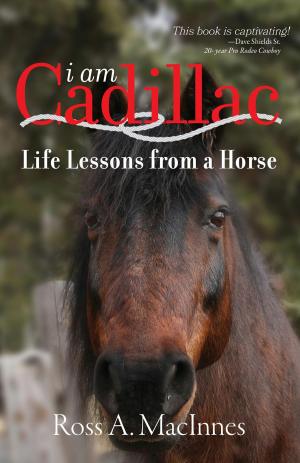THE AUTOBIOGRAPHY OF YOGI
BONUS EDITION
Nonfiction, Religion & Spirituality, Middle East Religions, Zoroastrianism, Biography & Memoir, Philosophers, Religious| Author: | Paramahansa Yogananda, James M. Brand | ISBN: | 1230003021613 |
| Publisher: | IN THE NEW AGE | Publication: | January 6, 2019 |
| Imprint: | Language: | English |
| Author: | Paramahansa Yogananda, James M. Brand |
| ISBN: | 1230003021613 |
| Publisher: | IN THE NEW AGE |
| Publication: | January 6, 2019 |
| Imprint: | |
| Language: | English |
HE AUTOBIOGRAPHY OF YOGI
BONUS EDITION
This is an autobiography of a Yogi is an autobiography of Paramahansa Yogananda (January 5, 1893–March 7, 1952) first published in 1946. Paramahansa Yogananda was born Mukunda Lal Ghosh in Gorakhpur, India, in a Bengali family.
Autobiography of a Yogi introduces the reader into the life of Paramahansa Yogananda and his encounters with spiritual figures of both the Eastern and the Western world. The book begins with his childhood family life, by finding his guru, to becoming a monk and establishing his teachings of Kriya Yoga meditation. The book continues in 1920 when Yogananda accepts an invitation to speak in a religious congress in Boston, Massachusetts, USA. He then travels across America lecturing and establishing his teachings in Los Angeles, California. In 1935 he returns to India for a yearlong visit. When he returns to America, he continues to establish his teachings, including writing this book.
The book is an introduction to the methods of attaining God-realization and to the spiritual thought of the East, which had only been available to a few in 1946. The author claims that the writing of the book was prophesied long ago by the nineteenth-century master Lahiri Mahasaya (Paramguru of Yogananda) also known as the Yogiraj and Kashi Baba. Before becoming a yogi, Lahiri Mahasaya's actual name was Shyama Charan Lahiri.
It has been in print for seventy years and translated into fifty languages by Self-Realization Fellowship.[2] It has been highly acclaimed as a spiritual classic including being designated by Philip Zaleski, while he was under the auspices of HarperCollins Publishers, as one of the "100 Most Important Spiritual Books of the 20th Century." It is included in the book 50 Spiritual Classics: Timeless Wisdom from 50 Great Books of Inner Discovery, Enlightenment and Purpose by Tom Butler-Bowdon.
The Autobiography of a Yogi takes the reader on a journey into the spiritual adventures of Paramahansa Yogananda. The book begins by describing Yogananda's childhood family life to his search for his guru, Yukteswar Giri, to the establishment of his first school, Yogoda Satsanga Brahmacharya Vidyalaya to his journey to America where he lectured to thousands, established Self-Realization Fellowship and visited with Luther Burbank, a renowned botanist to whom this book is dedicated. The book then takes you on Yogananda's return visit to India in 1935 where he encountered leading spiritual figures such as Therese Neumann in Bavaria, the Hindu saint Ananda Moyi Ma Mahatma Gandhi, Rabindranath Tagore,[16] Nobel Prizewinning physicist Sir C. V. Raman and Giri Bala, "the woman, yogi who never eats."[18] The reader then returns to the West with Yogananda where he continues to establish his teachings in America including writing this book.
The preface was written by Walter Evans-Wentz, an Oxford scholar of anthropology, a writer who was a pioneer in the study of Tibetan Buddhism and an author of The Tibetan Book of the Dead and Tibet's Great Yogi Milarepa. In the preface he wrote, "His unusual life-document is certainly one of the most revealing of the depths of the Hindu mind and heart, and of the spiritual wealth of India, ever to be published in the West."
Yukteswar Giri, Yogananda's guru, told him about a significant prediction made by Lahiri Mahasaya, Yukteswar's guru. Yukteswar heard him say, "About fifty years after my passing," he said, "my life will be written because of a deep interest in yoga which the West will manifest. The yogic message will encircle the globe, and aid in establishing that brotherhood of man, which results from direct perception of the One Father." In 1945 fifty years after Lahiri Mahasaya's passing in 1895, the Autobiography was complete and ready for publication.
In 1999, Autobiography of a Yogi was designated as one of the "100 Most Important Spiritual Books of the 20th Century" by a panel of theologians and luminaries convened by HarperCollins publishers. According to Philip Goldberg, who wrote American Veda, "... The Self-Realization Fellowship, which represents Yogananda's Legacy, is justified using the slogan, "The Book that Changed the Lives of Millions." It has sold more than four million copies and counting..."Autobiography of a Yogi is the most popular of Yogananda's books and SRF has published the book into 50 languages.
This edition also includes
BASIC TECHNIQUE OF KRIYA YOGA
Kriya Yoga Method Bonus Book
Part 1 and Part 2
Quotes From Paramahansa Yogananda
Original Illustrations
File information
Includes
Original book (THE AUTOBIOGRAPHY OF YOGI)
Kriya Yoga Method Bonus Book
Part 1 and Part 2
30 Famous Quotations
Image count
Reference
https://en.wikipedia.org/wiki/Autobiography_of_a_Yogi
Welcome To
This is the original version of
THE AUTOBIOGRAPHY OF YOGI
Kriya Yoga Method Bonus Book
Part 1 and Part 2
BASIC TECHNIQUE OF KRIYA YOGA
Quotes From Paramahansa Yogananda
Original Illustrations
File information 9.04MB
File size (E-Book)
Page count (8.5x11) 659
Word count 220.378
Image counts 80 original
HE AUTOBIOGRAPHY OF YOGI
BONUS EDITION
This is an autobiography of a Yogi is an autobiography of Paramahansa Yogananda (January 5, 1893–March 7, 1952) first published in 1946. Paramahansa Yogananda was born Mukunda Lal Ghosh in Gorakhpur, India, in a Bengali family.
Autobiography of a Yogi introduces the reader into the life of Paramahansa Yogananda and his encounters with spiritual figures of both the Eastern and the Western world. The book begins with his childhood family life, by finding his guru, to becoming a monk and establishing his teachings of Kriya Yoga meditation. The book continues in 1920 when Yogananda accepts an invitation to speak in a religious congress in Boston, Massachusetts, USA. He then travels across America lecturing and establishing his teachings in Los Angeles, California. In 1935 he returns to India for a yearlong visit. When he returns to America, he continues to establish his teachings, including writing this book.
The book is an introduction to the methods of attaining God-realization and to the spiritual thought of the East, which had only been available to a few in 1946. The author claims that the writing of the book was prophesied long ago by the nineteenth-century master Lahiri Mahasaya (Paramguru of Yogananda) also known as the Yogiraj and Kashi Baba. Before becoming a yogi, Lahiri Mahasaya's actual name was Shyama Charan Lahiri.
It has been in print for seventy years and translated into fifty languages by Self-Realization Fellowship.[2] It has been highly acclaimed as a spiritual classic including being designated by Philip Zaleski, while he was under the auspices of HarperCollins Publishers, as one of the "100 Most Important Spiritual Books of the 20th Century." It is included in the book 50 Spiritual Classics: Timeless Wisdom from 50 Great Books of Inner Discovery, Enlightenment and Purpose by Tom Butler-Bowdon.
The Autobiography of a Yogi takes the reader on a journey into the spiritual adventures of Paramahansa Yogananda. The book begins by describing Yogananda's childhood family life to his search for his guru, Yukteswar Giri, to the establishment of his first school, Yogoda Satsanga Brahmacharya Vidyalaya to his journey to America where he lectured to thousands, established Self-Realization Fellowship and visited with Luther Burbank, a renowned botanist to whom this book is dedicated. The book then takes you on Yogananda's return visit to India in 1935 where he encountered leading spiritual figures such as Therese Neumann in Bavaria, the Hindu saint Ananda Moyi Ma Mahatma Gandhi, Rabindranath Tagore,[16] Nobel Prizewinning physicist Sir C. V. Raman and Giri Bala, "the woman, yogi who never eats."[18] The reader then returns to the West with Yogananda where he continues to establish his teachings in America including writing this book.
The preface was written by Walter Evans-Wentz, an Oxford scholar of anthropology, a writer who was a pioneer in the study of Tibetan Buddhism and an author of The Tibetan Book of the Dead and Tibet's Great Yogi Milarepa. In the preface he wrote, "His unusual life-document is certainly one of the most revealing of the depths of the Hindu mind and heart, and of the spiritual wealth of India, ever to be published in the West."
Yukteswar Giri, Yogananda's guru, told him about a significant prediction made by Lahiri Mahasaya, Yukteswar's guru. Yukteswar heard him say, "About fifty years after my passing," he said, "my life will be written because of a deep interest in yoga which the West will manifest. The yogic message will encircle the globe, and aid in establishing that brotherhood of man, which results from direct perception of the One Father." In 1945 fifty years after Lahiri Mahasaya's passing in 1895, the Autobiography was complete and ready for publication.
In 1999, Autobiography of a Yogi was designated as one of the "100 Most Important Spiritual Books of the 20th Century" by a panel of theologians and luminaries convened by HarperCollins publishers. According to Philip Goldberg, who wrote American Veda, "... The Self-Realization Fellowship, which represents Yogananda's Legacy, is justified using the slogan, "The Book that Changed the Lives of Millions." It has sold more than four million copies and counting..."Autobiography of a Yogi is the most popular of Yogananda's books and SRF has published the book into 50 languages.
This edition also includes
BASIC TECHNIQUE OF KRIYA YOGA
Kriya Yoga Method Bonus Book
Part 1 and Part 2
Quotes From Paramahansa Yogananda
Original Illustrations
File information
Includes
Original book (THE AUTOBIOGRAPHY OF YOGI)
Kriya Yoga Method Bonus Book
Part 1 and Part 2
30 Famous Quotations
Image count
Reference
https://en.wikipedia.org/wiki/Autobiography_of_a_Yogi
Welcome To
This is the original version of
THE AUTOBIOGRAPHY OF YOGI
Kriya Yoga Method Bonus Book
Part 1 and Part 2
BASIC TECHNIQUE OF KRIYA YOGA
Quotes From Paramahansa Yogananda
Original Illustrations
File information 9.04MB
File size (E-Book)
Page count (8.5x11) 659
Word count 220.378
Image counts 80 original
